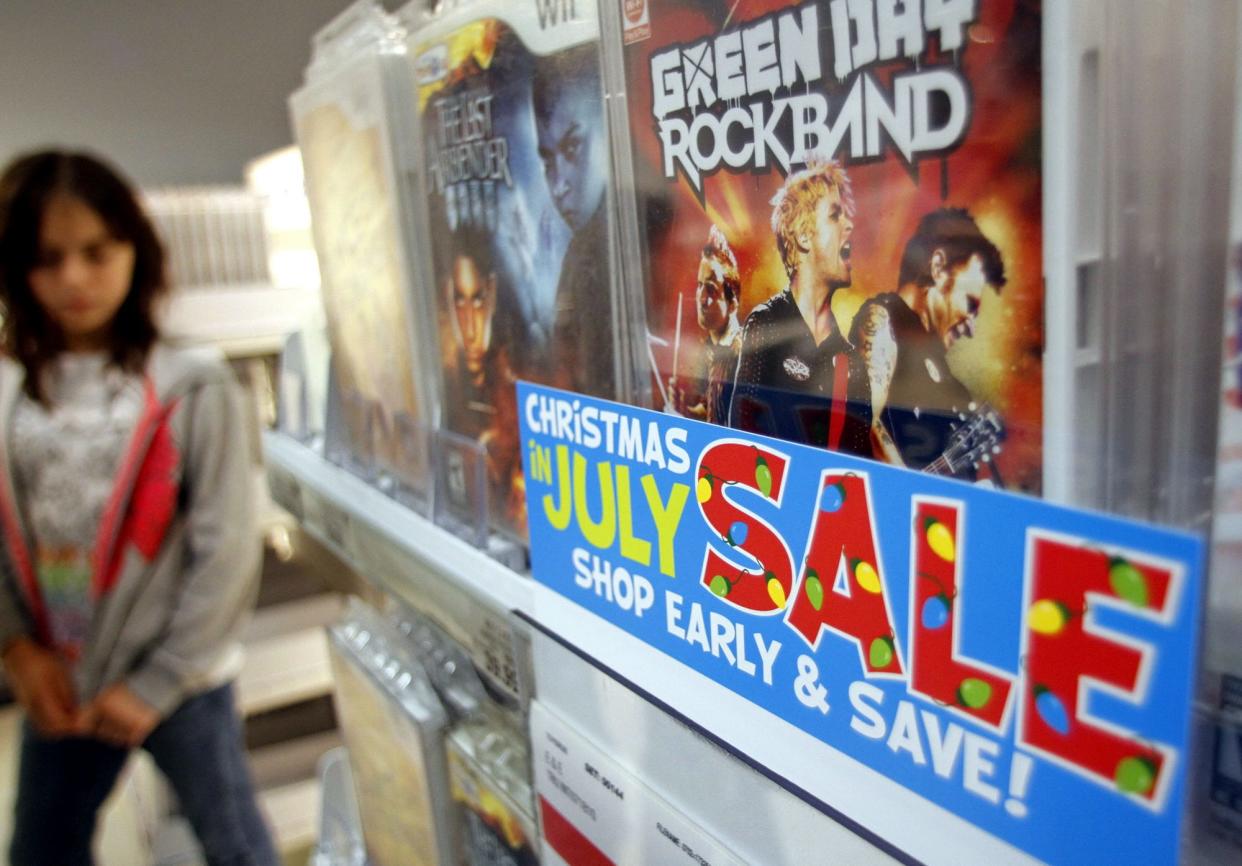Climate advocate: Forget Christmas in July sales — get outside and eat local instead

Christmas comes just once a year — or it used to, anyway. These days national retailers tout “Christmas in July” deals to bolster sales in the slower summer months. But don’t get sucked into the allure of slashed prices and discounted goods: The “bargain prices” are just another ploy to sell us stuff we don’t need at a cost the planet can’t afford.
The idea for Christmas in July reportedly originated at a North Carolina girls’ camp and gained national attention when a movie by the same name was released in 1940. Soon after that a church in Washington, D.C., began collecting Christmas presents in July for distribution in December. In July 1944 an early Christmas card campaign for World War II servicemen took place in New York.
But the slogan lost its altruistic spirit in 1950 when advertisers began using it as a marketing tool in print ads to boost lagging summer sales on appliances, clothing, home furnishings and sporting goods.
Oceana campaign manager: The North Atlantic right whale is Florida’s to save
Local student: Hazardous waste, child labor and other costs of ‘fast fashion'
Letters: Emergency rule allows gender-affirming care for trans teens and adults in Florida
The first Amazon Prime Day (in July 2015) took Christmas in July promotions to the next level. In 2022 shoppers purchased more than 300 million items worldwide. This year Amazon expects Prime Day revenue to top $12 billion. And Amazon isn’t alone — dozens of retailers now offer Christmas in July sales or “Black Friday in July” sales.
While purchasing goods on sale is appealing, especially as inflation continues to rise, our society simply can't let the endless growth economy continue to propel overconsumption. Once we’ve met our immediate physical and emotional needs, buying more “stuff” actually makes us less happy.
It’s also detrimental to the environment. Take, for example, the environmental costs of purchasing the latest cellphone. Its components — metal and plastic — come from mining and fossil fuel extraction, which destroy wild places and contribute to the climate crisis. Materials like lead and mercury are hazardous at the end of the product's life. Yet more than 150 million cell phones are thrown away every year, many before the end of their useful life.
Even purchasing smaller ticket items like a new shirt comes with hefty environmental consequences. Polyester clothing comes from plastic, which is derived from oil. Cotton clothing that’s not organic uses large amounts of water and harmful pesticides. Even wool, often plugged as environmentally friendly, comes with a heavy price tag of greenhouse gas emissions, land use, biodiversity loss and pollution.

During the actual Christmas holiday — the one that happens in December — Americans generate 23% more tons of waste than at any other time of year. No matter what Christmas in July marketing may lead us to believe, our planet simply can’t sustain that level of consumption.
When the time does come to pick up gifts for the winter holidays, use your money to support your local economy. Open a credit union account for a young person, buy a share of community supported agriculture for a family member or donate to a nearby mutual aid organization in a loved one’s name.
Buy from establishments owned by Black or Indigenous people and others of color. If possible, shop thrift or secondhand — or seek out a local reuse-and-refill store. Or skip material gifts altogether and give a gift of time or skill instead.
In the meantime, instead of getting sucked into shopping for Christmas gifts six months early, skip the sales and enjoy the season we’re in: Spend time outdoors, savor local seasonal produce and have new adventures with friends.

Kelley Dennings is a campaigner at the Center for Biological Diversity and lives in Jacksonville.
This guest column is the opinion of the author and does not necessarily represent the views of the Times-Union. We welcome a diversity of opinions.
This article originally appeared on Florida Times-Union: Christmas in July sales just one more factor in overconsumption

